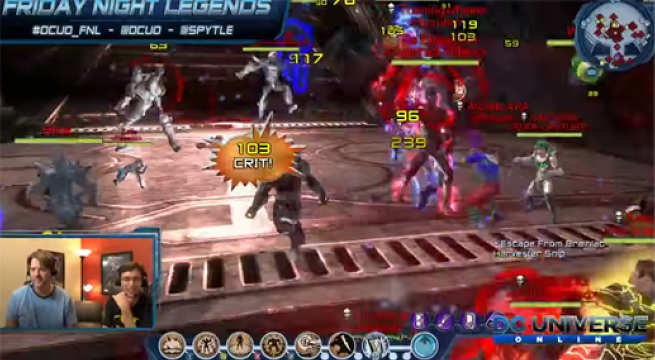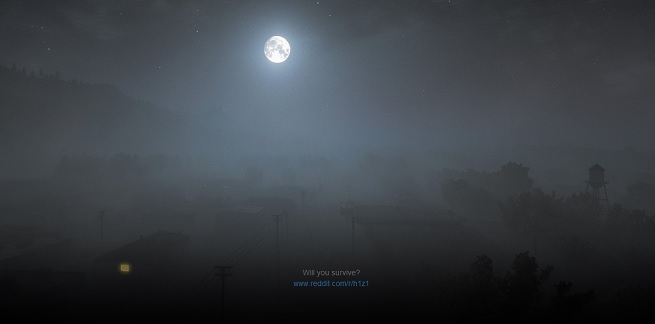GamesBeat: Is a lot of this your message to the crowd at the Game Marketing Summit, or do you have a specific angle that you’re going to convey?
Smedley: I want to spend a lot of time on what we’ve been able to do with Twitch. We got in early with them, and what I have seen is a company growing exactly how their users want them to. We just need to make sure we keep feeding the fire. I am a no-bullshit two-hour-a-night Twitch user. Unfortunately, maybe 45 minutes comes out of my reading time.
GamesBeat: If you had to summarize some tips here, what would you say?
Smedley: Number one: Embrace this immediately. It’s coming whether you want it to or not. Number two: Find some people inside your company that are authentic and real personalities. If you don’t, things will go badly for you. You have to be authentic. It’s the most important thing. The people who stream and are successful at it are good because they’re like the Howard Sterns of Twitch – they’re 100 percent authentic. Number three: Make sure you invest a bit of money for decent gear. The things that separate the great broadcasters from the average joes are maybe a few hundred dollars worth of merchandise. It’s true more on the microphone side than the video side. The video side, pretty much everything’s standardized on H.264. Number four: Know the message that you want to get out, so that when you’re answering questions, you have a direction. A completely aimless stream isn’t very interesting to watch. Serendipity may happen, but I wouldn’t count on it. Last but not least, I’d make sure to focus my attention on making sure the users have a schedule. They should know when you’re streaming. Set up replays, so you can get reviewed. Make sure that you feed your YouTube channel with the stuff that you do while you’re streaming. After it’s done, put it in the can and make sure that users can go see it.
GamesBeat: Do you have any other things to say on the subject?
Smedley: When an entire industry is moving in the same direction, that’s rare. We’re seeing that on this subject. To me, it’s definitely an eye-opener. I still see a lot of old-school companies not quite getting the message, but they will.
GamesBeat: Can you talk a bit about H1Z1 and how you’re going to apply some of these ideas there?
Smedley: My office now is in the H1Z1 area, and I love that. H1Z1 is basically — You watched The Walking Dead, right?
GamesBeat: Yeah, a bit. I played the game, of course.
Smedley: God, that game was good. What we’re trying to make is an apocalyptic world that’s a little different from something like DayZ. We want to build out a persistent world where the apocalypse has happened, not just a smaller server. We’re going for a feel where if you want to live the fantasy of this apocalypse, you can do that. But we’ll allow things like player-built towns, where they can wall off a town and fend off zombies and go fight for resources. If you want to be a lone wolf, you can do that to.
We’re going to be streaming later today. The Reddit is where our community lives, and we’re thrilled to have it there. What I like about Reddit — I get a lot of crap for this. I get crap for choosing to answer questions on Reddit more often than I answer them on our own forums. I’ll take the heat for that, because I love Reddit. I can be shouted down on Reddit. Any user can upvote or downvote. To me, that democratization is where it’s at. I want that. I want an honest user response, whether I like it or not.
GamesBeat: You just recently shut down some games, and you’re sunsetting some others. It seems like you have to think about marketing even when you’re doing something like that.
Smedley: It’s very interesting. We’ve made more MMOs than anybody, and we’ve shut down more than anybody. The reason for that is simple. When the user community gets below a certain size — I can’t give you a number there, if only because it really is different for every game. We’ve been more than willing to leave our games up for a long time, even in cases where we’ve been losing money on them. We’re always respectful to those players, but it’s just a part of gaming.
We closed down Free Realms and my own 12-year-old was crying. I’m not exaggerating even a little bit. There was a day where she completely didn’t talk to me. But at some point, games just have an end of life and it’s time to go on.
VentureBeat's mission is to be a digital town square for technical decision-makers to gain knowledge about transformative enterprise technology and transact. Learn More



